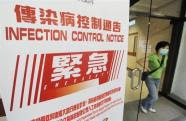Asian-owned firms have been looted in Papua New Guinea's two largest cities, amid simmering anti-Chinese sentiment.
Chinese-owned shops and offices were looted by gangs in the capital, Port Moresby, and the coastal city of Lae.
The cause of the disturbances is unclear, but hostility towards Chinese immigrants has been intensifying.
Community leaders predict an exodus of Chinese entrepreneurs, who own many businesses in the bigger cities, where unemployment has reached up to 80%.
Teams of police officers and private security guards have failed to stop the widespread looting.
In Lae, witnesses said that hundreds of men and boys had run amok and that much of the coastal city had been brought to a standstill.
In recent days, a man was reportedly stabbed to death as he tried to break into a shop.
Earlier this month, the building of a nickel mine was stopped after a fight over an industrial accident between Papua New Guinean and Asian workers.
Many settlers arrived in Papua New Guinea from China during World War II and there have been subsequent waves of migration.
There are fears the violence will force many to leave the South Pacific country, which would invariably heap further damage on an impoverished economy.
Expatriate Chinese also fled neighbouring Solomon Islands in large numbers after racially-charged disturbances in 2006.
(BBC)



